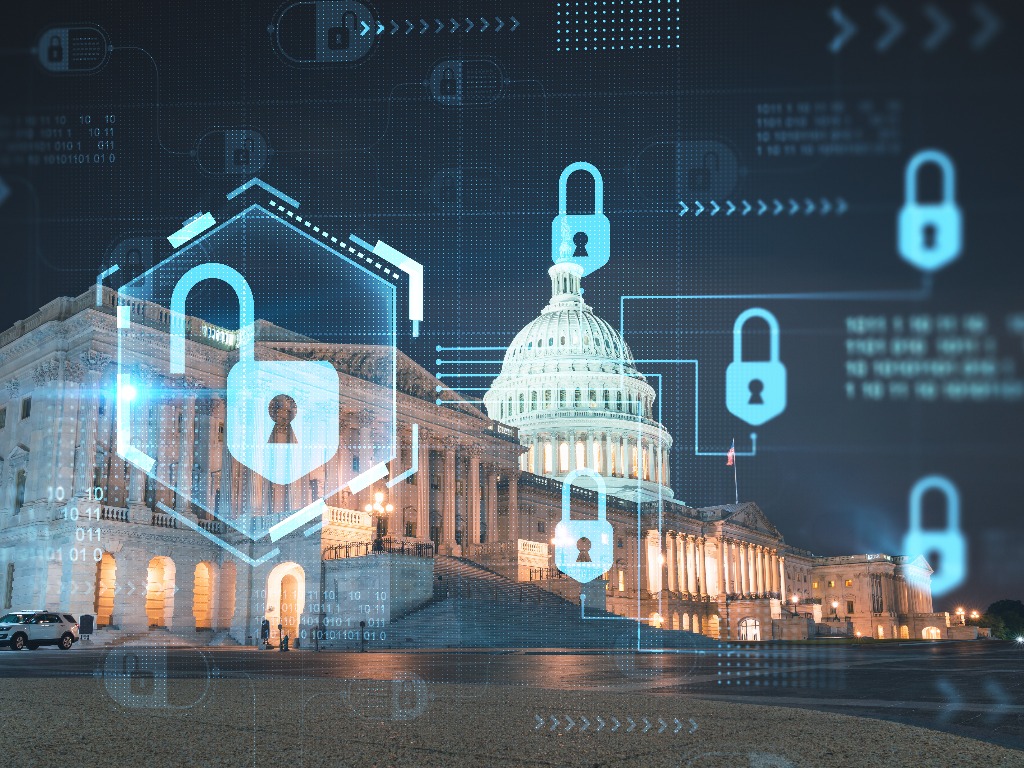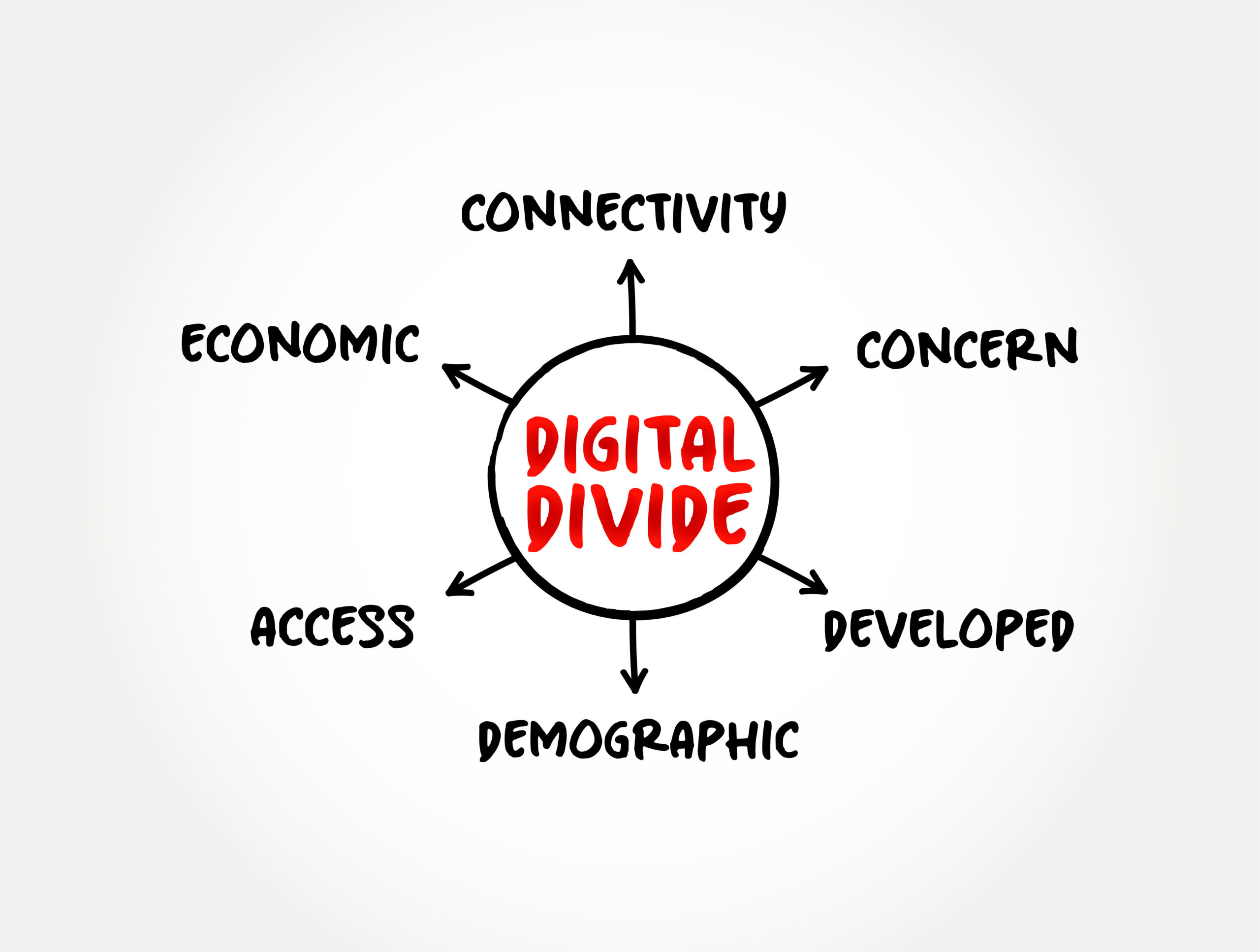The Top 5 IT and Technology Challenges For Local Governments
In an age of rapidly advancing technology, cities and counties must adapt to remain competitive and effectively serve their communities.
From cybersecurity threats to outdated infrastructure, local governments face various IT challenges that can hinder their ability to deliver essential services.
These challenges include:
- Limited technology budgets
- Cyber security threats
- Legacy systems
- Outdated infrastructure
- IT staffing issues
- Privacy concerns
As a city or local government, partnering with a technology provider experienced in managing towns and local governments is crucial.
As a Managed IT Service Provider in the Midwest for over 25 years, we have worked with and talked with hundreds of local city and government officials.
This quick guide delves into the top five IT challenges cities and counties face and offers actionable insights to help you overcome them.
The 5 IT and Technology Challenges for Local Governments
1. Response Times and Communication
IT support response times and communication are critical for city officials because they minimize downtime, help maintain operations, improve user satisfaction, reduce costs, and ensure cybersecurity efforts.
 Efficient communication is essential because cities and governments are responsible for delivering critical services to their residents, including public safety, Wi-Fi, education, healthcare, emergency services, and technology infrastructure. Therefore, maintaining a strong relationship with your IT provider is imperative for the success of your municipality’s IT solutions and services.
Efficient communication is essential because cities and governments are responsible for delivering critical services to their residents, including public safety, Wi-Fi, education, healthcare, emergency services, and technology infrastructure. Therefore, maintaining a strong relationship with your IT provider is imperative for the success of your municipality’s IT solutions and services.
IT support response times and communication is critical for city officials because it minimizes downtime, help you maintain your operations, improve user satisfaction, reduce costs, and ensure cyber security efforts.
Poor or erratic response times cause delays in delivering necessary services to your team and sometimes your entire community. For example, emergency services may not be able to respond quickly to incidents, resulting in possible harm to your people.
Likewise, delays in planning and budgeting processes can also hinder the implementation of critical infrastructure projects. This can significantly disrupt daily life for citizens and businesses. Alike.
A lack of communication with budgeting, planning, and IT can make it difficult for city officials and planners to make the right decisions. Having access to accurate and current contact is necessary for your entire team to understand the priorities and needs of their communities. Communication can lead to better decision-making, effective use of technology resources, and missed opportunities.
In addition, poor communication can also cause frustration and stress for city officials themselves. They may feel overwhelmed by the amount of work and pressure to meet deadlines without adequate IT support.
This could lead to employee burnout and high turnover rates, adding to the frustration.
It’s all about the relationship.
If the relationship between city officials and their IT company is strained or there needs to be more communication, it can lead to delays, technical issues, and even service disruptions. For example, if the IT company is unaware of updates or changes to city operations, it may be unable to provide the necessary support. This can cause delays in service delivery, which can be frustrating for citizens and city officials alike.
On the other hand, having a good relationship with the IT company is important because it ensures city officials access reliable, up-to-date technology to help them deliver better services to their communities. It also helps to prevent technical issues from disrupting critical services like emergency responses or utility services.
In addition, a good relationship with your IT company can help city officials to make better use of technology. For example, your IT company can provide guidance on the latest trends and best practices in technology, which can help you make more informed decisions about improving your services.
2. Cybersecurity
Cybersecurity and cybercriminals are the most pressing challenges of cities and municipalities today. These entities are responsible for handling sensitive data, from tax records to law enforcement information, and must take steps to protect this data from cyber threats.

Unfortunately, many cities and municipalities need more resources and expertise to implement effective cybersecurity measures.
Cybersecurity is critical for city officials to protect their offices and citizens from cyberattacks. Cybercriminals will target critical infrastructure, public services, and sensitive government data<
This results in significant financial and reputational damage and a breach of citizens’ trust.
Why cybersecurity is so critical to city officials:
Protecting sensitive data: As a city official, you are responsible for managing a vast amount of sensitive information, including personal information such as social security numbers, health records, and financial information. Cybercriminals will use this data to steal identities, commit fraud, and access confidential information.
Ensuring Public Safety: Many critical services, such as emergency services, rely on technology. A cyberattack on these services can cause delays or disruptions with life-threatening consequences.
Preventing Disruptions in Services: A cyberattack can disrupt critical services such as public transportation, utilities, and government services. For example, a ransomware attack on a city’s IT infrastructure can prevent officials from accessing critical data, leading to delays in service delivery and potentially significant financial losses.
Maintaining Public Trust: Your entire office is responsible for protecting citizens’ data and securing their personal information. A cyberattack can damage the trust between city officials and its people, resulting in a loss of confidence in government services.
City officials should expect their IT provider to offer these cyber security solutions:
- Regular cyber-security assessments
- Advanced threat intelligence
- Strong passwords and multi-factor authentication processes
- Intrusion detection
- Up-to-date software and hardware
- Cloud security
- Mobile device management
- Employee training programs
- Disaster recovery and business continuity planning
Cybersecurity is critical for city officials to protect their offices and citizens from cyberattacks. By implementing effective cybersecurity measures, you can ensure that sensitive data is protected, essential services are not disrupted, and public trust is maintained.
3. Outdated Infrastructure

Many cities and municipalities still need to rely on updated legacy infrastructure, which can slow their operations and limit their ability to provide services to their residents.
Governments’ technology is often decades old and lacks the capabilities to meet your offices and citizens’ needs and expectations.
Outdated technology infrastructure can have significant negative impacts on your city.
Here are some reasons why:
- Increased Risk of Cybersecurity Threats:
- Inefficient Service Delivery
- Increased Maintenance Costs
- Difficulty Attracting and Retaining Talent advances.
- Difficulty Meeting Citizen Expectations
Here is a list of things cities can do:
- Modernize their technology infrastructure to remain competitive and efficient.
- Evaluate the existing infrastructure to determine what needs to be updated or replaced.
- Prioritize modernizing infrastructure that is most critical to their operations.
- Work with third-party vendors to identify cost-effective solutions.
- Develop a long-term plan for upgrading their infrastructure that considers budget constraints and other factors.
A city’s outdated infrastructure is like a crumbling bridge. If checked, it can become a major liability that prevents the city from providing essential services to its residents.
4. Budget Constraints
Cities usually have limited budgets, making investing in new technologies or upgrading existing infrastructure challenging at best.
First, technology is a critical component of service delivery, and with adequate funding, city officials can provide essential services to their citizens. But, for example, limited technology budgets can lead to outdated infrastructure, inefficient service delivery, maintenance costs, and cybersecurity risks.
Second, inadequate technology budgets can make innovating and competing with other cities harder. New technologies are constantly emerging, and cities that need to invest in new technology may need to catch up to their peers. This can make it harder for cities to attract new businesses and talent, leading to declining economic growth and development.

Third, limited technology budgets can also impact the ability of city officials to meet citizen expectations. For example, imagine a city with an outdated 911 dispatch system that can no longer keep up with the volume of emergency calls. In this scenario, the city officials may be frustrated with limited technology budgets as they cannot upgrade the system, resulting in slower response times and potentially putting citizens in danger.
What can cities do?
- Prioritize Upgrades: Improve critical systems, such as cybersecurity, 911 dispatch systems, and other essential services.
- Explore Open-Source Solutions: Consider using open-source software that can provide cost-effective options.
- Explore Grants and Public-Private Partnerships: Find opportunities to secure grants or partner with private companies to fund technology projects.
- Implement Cost-Saving Measures: Such as energy-efficient hardware, to reduce technology-related expenses.
- Focus on User Experience: Focus on improving the user experience of existing technology systems to ensure they are efficient and effective for citizens and employees.
By prioritizing technology funding, city officials can ensure they have the resources they need to provide high-quality services to their citizens, foster economic growth and development, and maintain trust and engagement with their communities.
5. Digital Divide
 The digital divide refers to the gap between people with access to modern technology, such as high-speed internet and digital devices, and those without.
The digital divide refers to the gap between people with access to modern technology, such as high-speed internet and digital devices, and those without.
In cities, this can be seen in the disparities between neighborhoods, where some residents may have access to fast internet and modern devices while others do not.
The digital divide is important because it can impact access to essential services like healthcare, education, and job opportunities.
A good example is that students need access to high-speed internet to complete online homework assignments, while job seekers who need digital skills may need help finding work.
To address the digital divide, cities can take several steps, such as:
- Providing Public Wi-Fi
- Offering Technology Training
- Promoting Digital Inclusion
- Supporting Broadband Infrastructure
- Encouraging Affordable Technology
The digital divide can significantly impact access to essential services, and cities must address it. By providing public Wi-Fi, offering technology training, promoting digital inclusion, supporting broadband infrastructure, and encouraging affordable technology access, cities can help to close the digital divide and ensure that all residents have access to the tools they need.
Conclusion
IT and technology play a significant role in the functioning of cities and municipalities. However, cities and municipalities need help with implementing technology and IT solutions. From limited budgets to cybersecurity threats to the digital divide, these challenges can impact the ability of cities and municipalities to provide essential services to their citizens and compete in a modern, digital world.
It is critical that, as a city or local government, you partner with a technology provider who is experienced in managing towns and local governments.
If you want to learn more insights or IT support, cyber security, and digital transformation for your organization, go deeper into our website.
Whether you are looking for ways to improve cybersecurity, address the digital divide, or reduce the impact of limited technology budgets, we have the tools and expertise to help.





